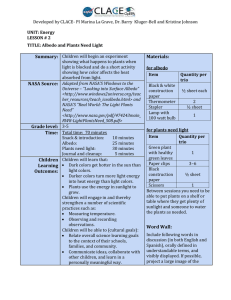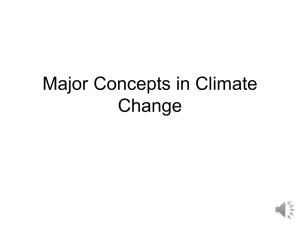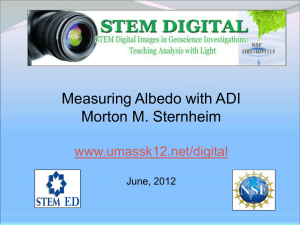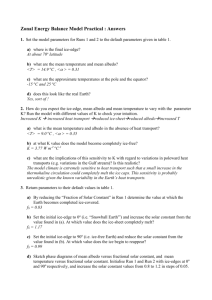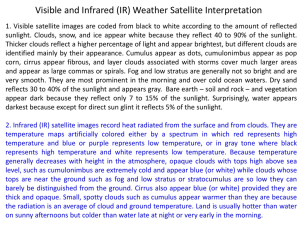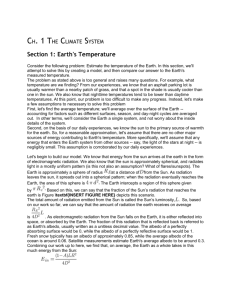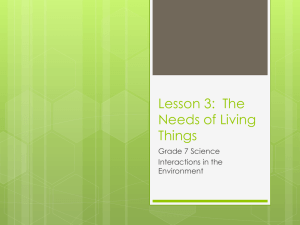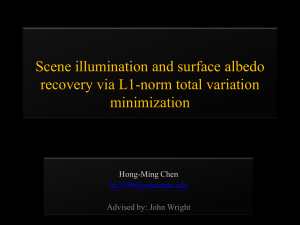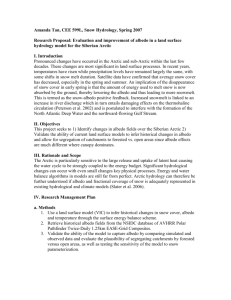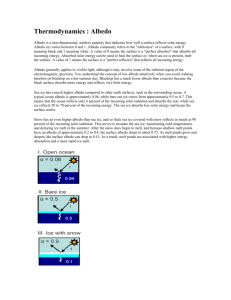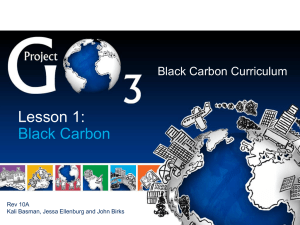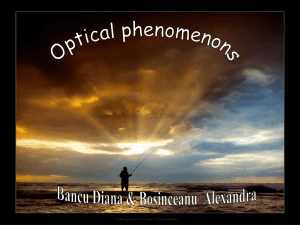2.1.3 Energy Budget Slides
advertisement
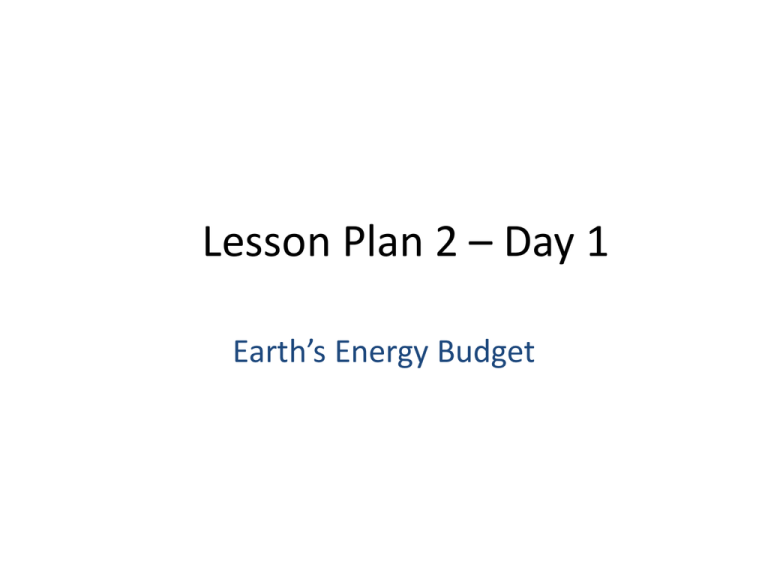
Lesson Plan 2 – Day 1 Earth’s Energy Budget Earth’s Energy • Energy is the ability to change the surroundings – Examples: fuel for a car, ball falling from a window, electricity to turn on a light Budget • Budget is the amount of incoming or outgoing energy allocated to a system – Money – Time Equilibrium • Equilibrium is the state of balance between things – Emotional – Chemical reactions – Forces • Equilibrium means that the total amount may change over time, but the proportion in the budget parts stay fairly the same. Follow the Energy . . . . • SUN – EARTH Model • What in the model is the Sun? • What in the model is the Earth? – Where is the equator? – Where is the north pole? – Where are you? Input = Sunlight on one side of Earth Earth intercepts sunlight Sun emits radiation Sunlight is Energy Sunlight comes in a range of SHORT wavelengths called visible light Once the sunlight reaches the Earth’s surface, what happens? Reflected or Absorbed Follow the Energy Albedo = Reflection • How much is reflected? • Scale is 0-1 • What do you think? High or low albedo? • White =1, • • • • • – High reflectivity • Black = 0 – Low reflectivity Grass Ice Rocks Asphalt Concrete Albedo = Reflection Optional Video • http://www.youtube.com/watch?v=9UJKVa2Cl CU&feature=related • Begin at 1:50. Researcher out on the ice, measuring albedo. CLOUDS • Clouds reflect sunlight and need to be included in the energy budget • Low thick clouds = high reflection, cools the surface • High thin clouds = lower reflection and other things (next class), warms the surface Input = Sunlight on one side of Earth Earth intercepts sunlight 30% is reflected Sun emits radiation What happens to the energy that enters the Earth system? Concept Map – additions • Sun or Sunlight • Earth • Energy Budget • Albedo End of Day What types of areas of Earth have - a high albedo? - a low albedo? (think urban, farmland, desert, etc.) Earth’s albedo Collected by NASA satellite and averaged. Does not include the ocean and no data for white areas.
